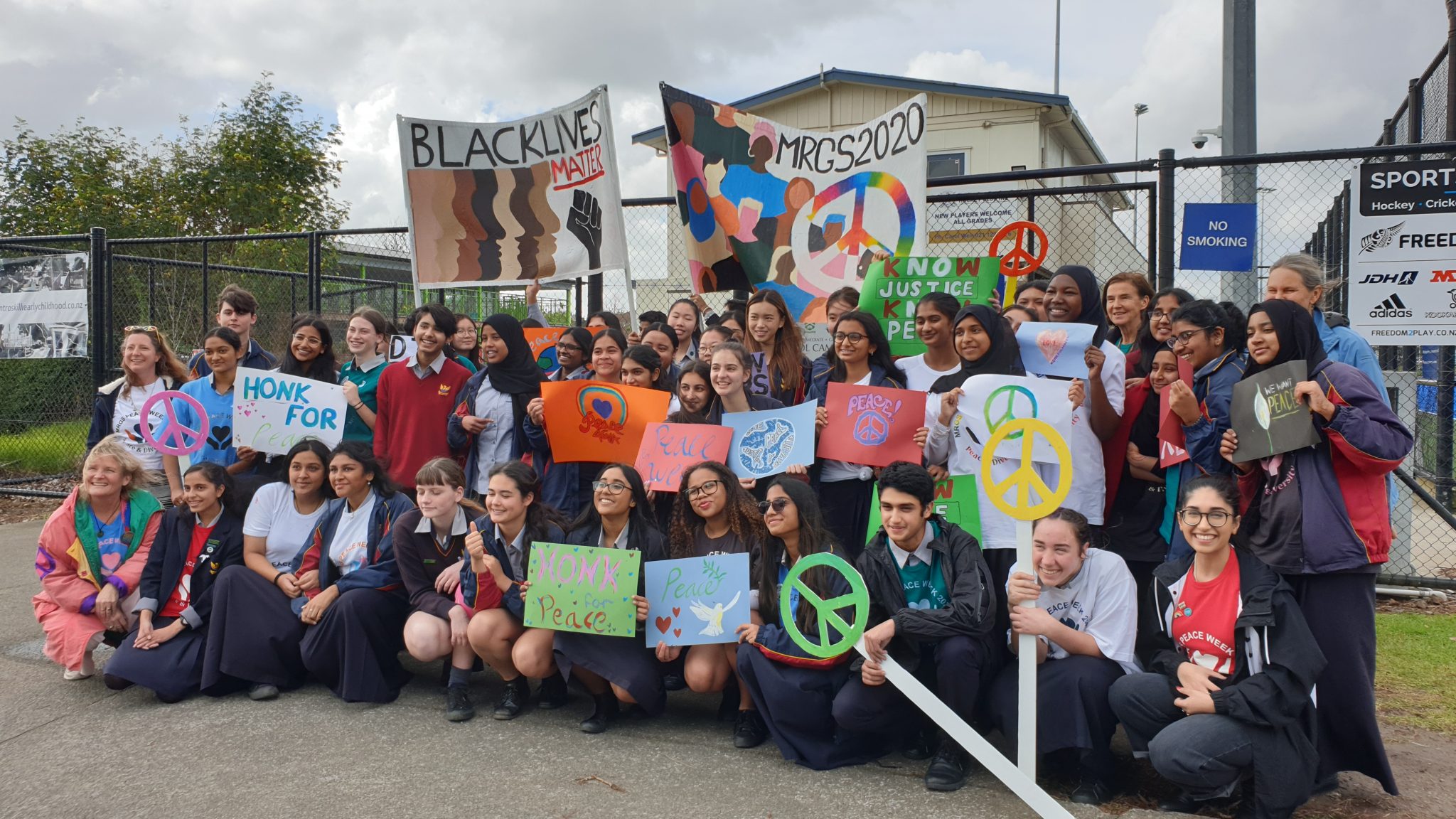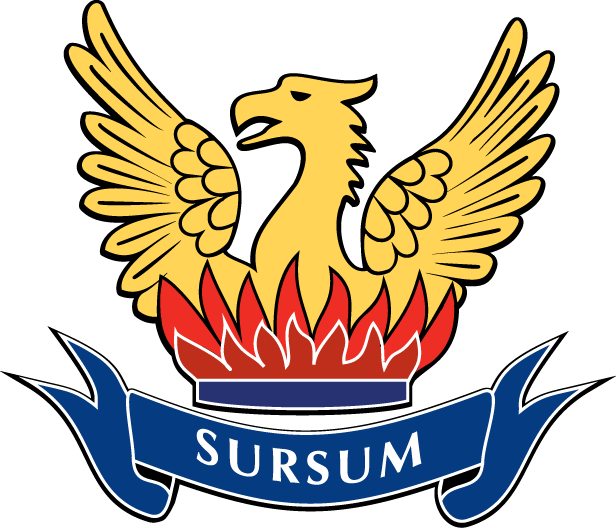
Peer Mediation is about students helping students. Mediators aim to resolve conflict in a constructive way. Conflict is a normal part of our lives and it is how we choose to deal with it that can make the difference.
The New Zealand Peace Foundation provides the mediation training in our school. Mediators learn to respect diversity and to value differences.
The role of the Mediators is to not only help students resolve conflict behind closed doors in a confidential mediation room. It is also about being “Ambassadors of Social Justice”. Mediators lead in the school community by promoting and modelling fairness and respect for others, watching out for harassment and bullying, and by supporting students to get help when needed. They aim is to help the school to be a safer place.
Mediators lead in the celebration of International Peace Week with assembly presentations, painted banners and white ribbons, face painting, stall day and a community Peace march.
They publish daily peace quotes during this week:
“An eye for an eye makes everyone blind” (Mahatma Gandhi)
“The only thing necessary for evil to triumph is for good people to do nothing” (Edmund Burke)
Our school initiated Peer Mediation services in 1994. Today we have over 230 trained Mediators. Annually over 190 students apply to become Mediators, and 100 students are selected to do the training.
Students interested in applying need to be in Year 11 and 12. Applications are invited at the beginning of each year. Advanced Mediation training in Human Rights issues is provided the following year. We presently have 80 Advanced Mediators. 40 Mediators each year have the opportunity to train as Life Mentors. After an intensive two-day training programme, they are equipped to provide one to one support to younger students.
Students are welcome to see our friendly receptionist Jan Pace at Student Services to request a Mediation, or a Peer Life Mentor. Confidentiality assured!
Independent Research Shows Outstanding Results for MRGS Peer Mediation Service.
The research project: Leadership through Peer Mediation (LtPM): Assessing its Impact in Nine Secondary Schools throughout the Auckland Region by Unitec Dr Helene Connor and Peace Foundation researcher Leo Buccahan in 2016 found overwhelming positive effects of the programme on students, teachers and school environments. Over 56% of the research respondents were from MRGS which is indicative of the success of the LtPM programme in the school.
Principals, school coordinators, teachers, current LtPM Peer Mediators, former LtPM Peer Mediators and students who had used the LtPM peer mediation service were overwhelmingly positive about the set of skills students learnt around peaceful conflict resolution. The following quotes from student LtPM mediators exemplify the impact of learning skills around peaceful conflict resolution:
“Being a mediator definitely allowed me to develop the skills I needed to improve my relations with the people around me. I feel like not very many people are conscious of the importance of skills like reflective listening, rapport building and using “I” statements, especially in daily situations. Safe to say, I definitely learned a lot being an LtPM mediator at MRGS, especially since I was able to mentor younger mediators as well.”
“All the skills taught in the training are life-long skills and I only wish everyone was taught this at school.”
“The Peer Mediation training and programme contributes significantly to student wellbeing! It creates belonging, connectedness and social responsibility.”
The research found that the majority of the respondents felt LtPM was of benefit to the culture of the school. LtPM was viewed as being helpful in improving relationships within the student population and appeared to reduce bullying, creating a safer environment.
Current and former LtPM Peer Mediators overwhelmingly found their peer mediation training and experience impacted positively on their lives both at school and beyond the school. A number of the comments mention improved relationships with family and friends and feeling more confident to tackle conflict when it arises. Former LtPM Peer Mediators commented on the usefulness of the training in their jobs or when they went onto tertiary study.
“I use the skills I’ve learnt in my personal life all the time. As a trainee doctor, being able to build rapport and understand different personality types has been invaluable. I still reference my peer mediation training when we have professional and communication skills assessments!”
The Research Report recommends that a case study of Mount Roskill Grammar School be undertaken as the results of the Survey Monkey survey, clearly identified this school as a ‘stand-out’ success regarding the implementation of the LtPM programme. A case study would help identify some of the underpinning reasons for the success of the programme and why it has been so stringently supported by staff and students alike.
‘Students are the agents of change, you give them the responsibility and they will fly with it!’
This programme is coordinated by Counsellor Donna Hourigan-Johnston.

